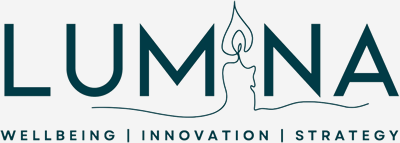The Real 5am Club
It’s 5am and your alarm is screaming. The cat jumps on you r bed and decides to pee on your pillow.
The world tells you this is what successful people do—wake early, push harder, squeeze more out of every day. But lying there, half-asleep, smelling of cat and already exhausted, you can’t help but wonder: is this really success?
The real 5am club isn’t about alarms and hustle. It’s about the moment you wake too early after too little sleep and ask yourself, “What kind of person do I want to be when I show up today?” I’ve been there—mind racing, body drained, convinced I should be doing more, when what I actually needed was more rest.
Somewhere along the way, rest picked up a bad reputation. We started attaching words like lazy, unproductive, or indulgent to it. At the same time, pushing through exhaustion was rebranded as proof of drive and determination. It’s no wonder so many of us feel guilty about slowing down. Yet exhaustion doesn’t make us stronger. It makes us slower, less creative, and more reactive. It turns us into a watered-down version of ourselves.
The evidence is clear. People who rest well think more clearly, handle stress better, and bounce back faster when challenges come. They make better decisions, approach problems with more creativity, and show up fully rather than stumbling through the day half-present. Rest isn’t weakness. It’s the foundation of strength.
I remember one week when I pushed through on four hours of sleep each night. By Friday, I wasn’t working smarter or getting ahead. I was short-tempered, forgetful, and running on coffee and adrenaline. The work suffered, my patience evaporated, and the people around me didn’t get the best of me—they got what was left of me. That experience taught me that exhaustion doesn’t just punish your body; it distorts your relationships and diminishes your presence.
We would never expect our phone to last all day on ten percent battery or imagine we could drive a car on an empty tank. Yet somehow we expect ourselves to function without recharging. And rest rarely looks urgent. Deadlines shout at us. Emails pile up. Family and community demands press in. Rest, by contrast, is quiet. It waits in the background, and because it doesn’t demand our attention, we assume it can wait. But what looks optional in the moment quickly becomes unavoidable. Ignore rest long enough and your body will force you to stop—through illness, burnout, or sheer collapse. Choosing rest before you’re forced into it is not indulgence. It’s wisdom.
Reclaiming rest begins with permission. It’s the quiet, stubborn decision to see rest not as indulgence but as strategy. It means asking yourself what really happens when you push through tiredness and noticing how different you are when you’re properly rested. It requires clarity about what kind of rest you need—whether that’s a minimum number of hours of sleep, small pauses during the day, or regular time each week to step back and recharge. Protecting this time has to become as normal and non-negotiable as any other important appointment.
It also means challenging the stories we inherited. Many of us grew up in families, cultures, or workplaces where busyness was the sign of value. We were taught to prove ourselves through output rather than presence. When you stop to rest, it can feel uncomfortable because it pushes against those old scripts. But the discomfort is worth sitting with, because on the other side is a healthier, more sustainable way of living and working. The hardest shift is often internal—the ability to say, “Rest matters enough to protect it, even if others don’t understand.”
There is also a community dimension to this. When leaders choose to rest, they don’t just improve their own wellbeing—they give permission for others to do the same. When parents rest, they model resilience for their children. When workplaces respect downtime, people thrive rather than merely survive. Every act of choosing rest sends ripples outward.
Rest, in this sense, becomes an act of rebellion. We live in a world that glorifies grind and hustle, where sleep deprivation is worn like a medal. Choosing rest in that context is a brave refusal to measure your worth by exhaustion. It’s deciding that you want to do meaningful work for the long haul, not just survive the week ahead. It’s recognising that your value isn’t determined by how little sleep you can endure, but by how well you show up for yourself and the people who matter to you.
The real 5am club is not about rising early to squeeze in more tasks. It’s about waking up to the truth that you cannot perform at your best if you never recharge. Rest isn’t stolen time—it’s an investment. It isn’t the opposite of productivity. It’s the very thing that makes achievement possible.
So the next time you find yourself awake in the early hours, don’t ask, “What more can I get done?” Ask instead, “What kind of person do I want to be when I show up today?” Because the real 5am club isn’t about alarms and grind. It’s about choosing rest—essential, not optional—so you can meet the day with strength, clarity, and presence. That balance is where true flourishing begins, and it’s what the real 5am club is all about.
